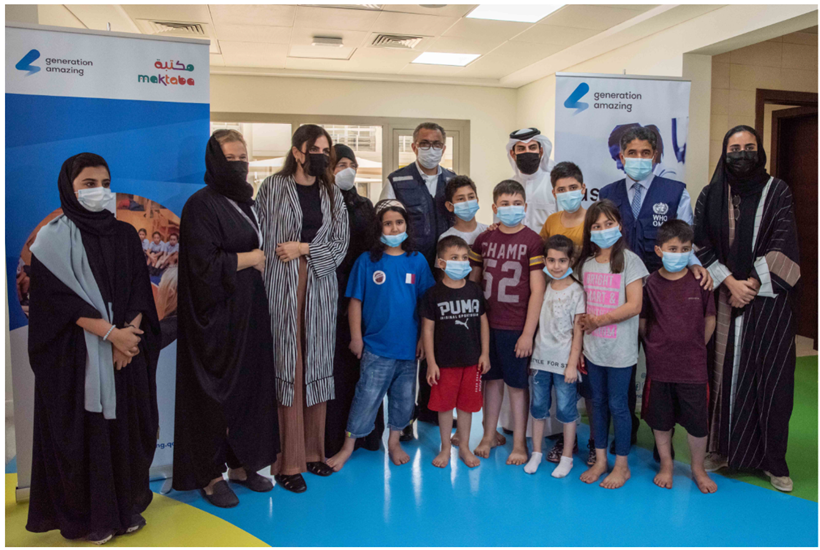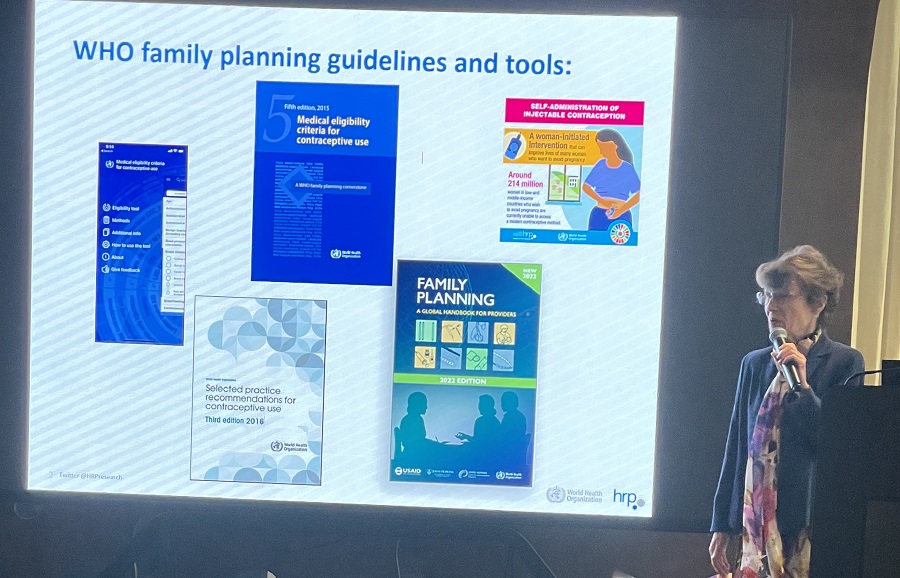
19 June 2023, Doha – It has been one year since the establishment of a WHO country office in Qatar. The opening of the WHO country office coincided with one of the largest global sports events – the 2022 FIFA World Cup, hosted by Qatar – crowned the first of its kind partnership between the World Health Organization, Qatar and the International Federation of Football Associations, which launched the Sport for Health programme.
"This was a great start. We are proud that we, at the 3 levels of WHO, were part of this prominent global event that Qatar successfully led. The country office coordinated WHO support advising the Ministry of Public Health and stakeholders, conducting joint planning and strengthening emergency preparedness and response plans, testing them and partnering to maintain a high level of vigilance and oversight," said Dr Ahmed Al-Mandhari, WHO Regional Director for the Eastern Mediterranean.
Long history of effective collaboration
Even before the opening of a country office, WHO had a long history of effective collaboration with Qatar. “The establishment of the WHO country office in Qatar gave WHO greater visibility in the country, allowing for a greater understanding of our work, ensuring greater coherence and helping to better promote action to improve health, with the full support of the Ministry of Public Health,” noted Dr Rayana Bou Haka, WHO Representative in Qatar.
Upon establishment of the new office, WHO conducted an assessment of all cities in Qatar and some cities were assigned as new healthy cities as part of the Healthy City Network.
Other activities included:
assessing the effectiveness of vaccine management and developing a plan of action to address any gaps;
conducting an after action review workshop on the FIFA World Cup 2022 and developing key recommendations that could be shared with other countries planning mega-sports events;
facilitating WHO’s participation and contribution to international conferences held in Qatar, such as the Qatar International Conference on Infectious Diseases, Middle East Forum on Quality and Safety in Healthcare 2023, and 9th Qatar International Mental Health Conference.
WHO also played an active role in numerous events, including launching surveys and supporting high-level meetings both within and outside Qatar in areas such as family planning, polio, noncommunicable diseases, the Sustainable Development Goals, training, research, development of the health workforce, road safety, tobacco control and the One Health approach.
Expanding partnerships
Since the opening of its office, WHO has exerted significant efforts in establishing partnerships with key stakeholders, including the Ministries of Foreign Affairs, Education, Social Development, Interior, Municipalities and Environment, and key institutions, such as Hamad Medical Corporation, Planning and Statistics Authority, Regulatory Authority for Charity Associations, Qatar Primary Health Care Corporation, Qatar Red Crescent Society, Qatar Cancer Society, and academic institutions, including Weill Cornell, Qatar University and Doha Graduate Institute for Humanitarian Studies.
Through close partnerships with the Ministry of Foreign Affairs and Regulatory Authority for Charitable Activities, it was possible to enhance multilateral work at regional and global level and development support and humanitarian aid, especially for countries experiencing complex emergencies.
Further collaboration
National authorities have been eager to further develop collaboration, and in this respect, the Ministry of Public Health and WHO at the 3 levels of the Organization launched the Sports for Health programme, the healthy ageing initiative and behavioural insights for health programmes, among many other milestones and key activities.
“The establishment of the WHO office greatly enhanced the work of WHO at country level and beyond. Our partnership with the Ministry of Public Health goes from strength to strength. We are also strengthening collaboration with many institutions besides the Ministry and adding to our list of partners to improve public health and health care and ensure a healthier future for all, in line with WHO’s regional vision of Health for All by All,” added Dr Rayana Bou Haka.





